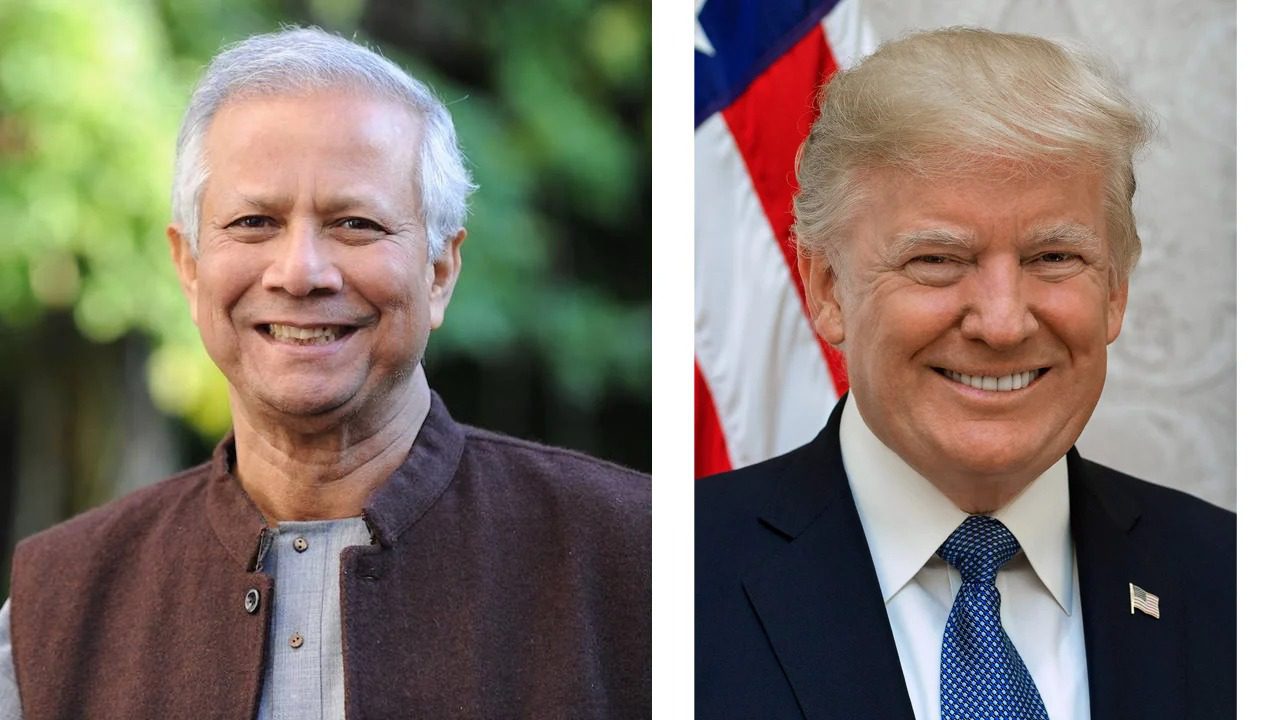TOB Report, Dhaka;
Chief Adviser Muhammad Yunus has written to US President Donald J Trump, requesting a three-month deferral in the application of reciprocal US tariffs on Bangladeshi exports.
The pause, he said, would allow the interim government sufficient time to implement its strategy for significantly increasing imports from the United States.
In the letter, Yunus emphasized that Bangladesh is the first country to undertake such a proactive initiative. He referenced the recent visit of High Representative Khalilur Rahman to Washington, DC in February, which he described as a key step in advancing bilateral trade cooperation.
“Since then, both sides have been working closely to identify concrete actions,” he wrote, according to a statement from the Chief Adviser’s Press Wing.
“Bangladesh is also the first country to sign a multi-year agreement for the import of liquefied natural gas (LNG) from the US.”
A central pillar of Bangladesh’s trade strategy involves a significant increase in imports of US agricultural products such as cotton, wheat, corn, and soybeans — steps aimed at providing direct benefits to American farmers.
The Chief Adviser also noted that Bangladesh already imposes the lowest tariffs on most US exports among South Asian nations, and further tariff reductions are under consideration.
These include high-value American export items such as gas turbines, semiconductors, and medical devices.
Yunus said that Bangladesh is eliminating certain testing requirements, streamlining packaging, labeling, and certification procedures, and building dedicated duty-free bonded warehouses for US cotton to improve speed-to-market.
“We are also simplifying customs processes and aligning standards to support US exporters,” he said. “Bangladesh will take all necessary actions to support your trade agenda.”
A follow-up letter detailing the full scope of Bangladesh’s proposed trade reforms will soon be sent to the US Trade Representative (USTR), the Press Wing added.
Sources confirmed that Commerce Adviser Sheikh Bashir Uddin has already sent a letter to the USTR outlining Bangladesh’s proposal to expand zero-tariff access for an additional 100 product categories.
This would be in addition to the 190 product lines that already enjoy duty-free entry into the Bangladeshi market.
“Our government is actively exploring options to lower tariff rates, eliminate non-tariff barriers, and implement policy reforms aimed at strengthening bilateral trade,” the letter from the Commerce Adviser reads.
He further mentioned Bangladesh’s intention to sign a long-term LNG import deal with the US, encourage American car manufacturers to establish production facilities in the country, and promote large-scale private sector imports of key agricultural commodities like soy, wheat, and cotton.
Bangladesh also aims to grant US private equity greater access to its healthcare and services sectors.
“These initiatives will help reduce the trade imbalance between our two nations,” Uddin wrote.
The letter also addressed the disparity in current tariff regimes.
“Since the withdrawal of preferential access for Bangladeshi exports, the US has imposed a 15% tariff on all Bangladeshi goods. In contrast, Bangladesh maintains a weighted average tariff of 6.1% on US imports—with raw cotton and steel scrap facing tariffs of 0% and 1%, respectively,” it read.
The government reiterated its commitment to open dialogue and collaborative problem-solving to remove any existing barriers to US exports and resolve trade disputes in a mutually beneficial manner.
“We have already conducted a series of meetings with the US Embassy’s trade wing to identify and address trade barriers, and several corrective measures have been agreed upon,” the letter stated.
In closing, Uddin reaffirmed the commitment of the interim government to initiating constructive engagement and deepening trade relations with the US.
“We believe these efforts will not only strengthen bilateral trade but also contribute to improving the livelihoods of people in both countries,” he said.
“We look forward to your response.”
On April 2, President Trump announced reciprocal tariffs on exports from several countries, including a 37% tariff on Bangladeshi goods, 26% on Indian exports, 34% on Chinese goods, and 20% on those from the European Union, in response to existing duties imposed on US products.


